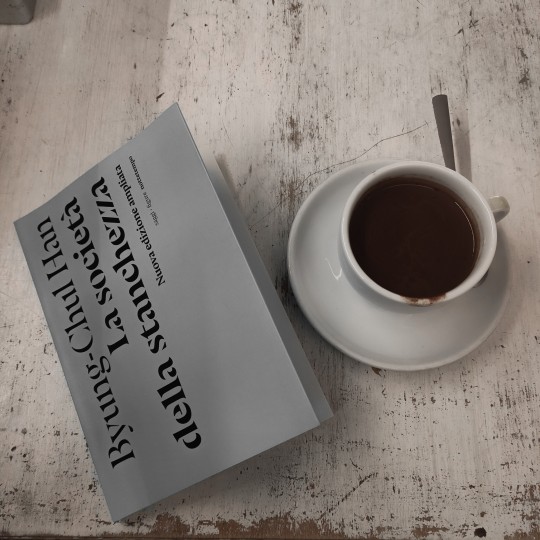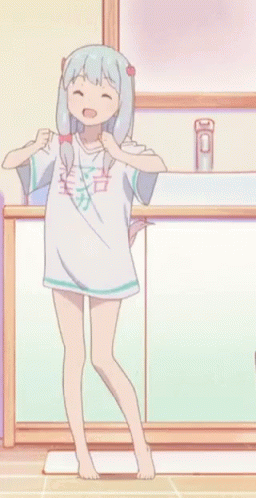#byung chul han
Text

byung chul han, vita contemplativa
662 notes
·
View notes
Text
"Rituals are architectures of time, structuring and stabilising life, and they are on the wane. The pandemic has accelerated the disappearance of rituals. Work also has ritual aspects. We go to work at set times. Work takes place in a community. In the home office, the ritual of work is completely lost. The day loses its rhythm and structure. This somehow makes us tired and depressed.
In The Little Prince [1943], by [Antoine de] Saint-Exupéry, the little prince asks the fox to always visit at the exact same time, so that the visit becomes a ritual. The little prince explains to the fox what a ritual is. Rituals are to time as rooms are to an apartment. They make time accessible like a house. They organise time, arrange it. In this way you make time appear meaningful.
Time today lacks a solid structure. It is not a house, but a capricious river. The disappearance of rituals does not simply mean that we have more freedom. The total flexibilisation of life brings loss, too. Rituals may restrict freedom, but they structure and stabilise life. They anchor values and symbolic systems in the body, reinforcing community. In rituals we experience community, communal closeness, physically.
Digitalisation strips away the physicality of the world. Then comes the pandemic. It aggravates the loss of the physical experience of community. You’re asking: can’t we do this by ourselves? Today we reject all rituals as something external, formal and therefore inauthentic. Neoliberalism produces a culture of authenticity, which places the ego at its centre. The culture of authenticity develops a suspicion of ritualised forms of interaction. Only spontaneous emotions, subjective states, are authentic. Modelled behaviour, for example courtesy, is written off as inauthentic or superficial. The narcissistic cult of authenticity is partly responsible for the increasing brutality of society.
In my book I argue the case against the cult of authenticity, for an ethic of beautiful forms. Gestures of courtesy are not just superficial. The French philosopher Alain says that gestures of courtesy hold a great power on our thoughts. That if you mime kindness, goodwill and joy, and go through motions such as bowing, they help against foul moods as well as stomach ache. Often the external has a stronger hold than the internal.
Blaise Pascal once said that instead of despairing over a loss of faith, one should simply go to mass and join in rituals such as prayer and song, in other words mime, since it is precisely this that will bring back faith. The external transforms the internal, brings about new conditions. Therein lies the power of rituals. And our consciousness today is no longer rooted in objects. These external things can be very effective in stabilising consciousness. It is very difficult with information, since it is really volatile and holds a very narrow range of relevance."
- Byung-Chul Han being interviewed by Gesine Borcherdt, from "Byung-Chul Han: 'I Practise Philosophy as Art.'" Art Review, 2 December 2021.
#byung chul han#quote#quotations#ritual#ceremony#liturgy#time#community#philosophy#gesine borcherdt#faith#zen#christian theology#anthropology#consciousness#neoliberalism#capitalism
2K notes
·
View notes
Text
“The voracious consumption of images makes it impossible to close your eyes. The punctum presupposes an ascesis of seeing. Something musical is inherent in it. This music only sounds when you close your eyes, when you make "an effort at silence." Silence frees the image from the "usual blabla" of communication. Closing your eyes means "making the image speak in silence." This is how Barthes quotes Kafka: “We photograph things to drive them away from the spirit. My stories are a way of closing my eyes.. »”
― Byung-Chul Han, Saving Beauty
414 notes
·
View notes
Text
Today’s society is no longer Foucault’s disciplinary world of hospitals, madhouses, prisons, barracks, and factories. It has long been replaced by another regime, namely a society of fitness studios, office towers, banks, airports, shopping malls, and genetic laboratories. The society of the 21st century is no longer disciplinary, but a society of the performance. Nor are its inhabitants called ‘subjects of obedience’, but ‘subjects of performance’. These subjects are entrepreneurs of themselves.
Excess work and performance escalate into auto-exploitation. This is much more effective than the exploitation by the others, because it is accompanied by a feeling of freedom. The exploiter is the same exploited. Victim and executioner can no longer differentiate. This self-referentiality generates a paradoxical freedom, which, because of the structures of obligation immanent to it, becomes violence […] In this society of obligation, each one carries with him his forced labor field.
What proves problematic is not individual competition per se, but rather its self-referentiality, which escalates into absolute competition. That is, the achievement-subject competes with itself; it succumbs to the destructive compulsion to outdo itself over and over, to jump over its own shadow. This self-constraint, which poses as freedom, has deadly results..
No-longer-being-able-to-be-able leads to destructive self-reproach and auto-aggression. The achievement-subject finds itself fighting with itself. The depressive has been wounded by internalized war. Depression is the sickness of a society that suffers from excessive positivity. It reflects a humanity waging war on itself.
Today, everyone is an auto-exploiting labourer in his or her own enterprise. People are now master and slave in one. Even class struggle has transformed into an inner struggle against oneself.
― Byung-Chul Han, extracts from The Burnout Society
#Byung-Chul Han#byung chul han#the burnout society#mass culture#culture industry#cultural criticism#philosophy#german philosophy#foucault
636 notes
·
View notes
Text
The economy of violence is ruled by a logic of accumulation. The more violence you exert, the more powerful you feel. Accumulated killing power [Tötungsgewalt] produces a feeling of growth, force, power [Macht] – of invulnerability and immortality. The narcissistic enjoyment human beings take in sadistic violence is based on just this increase in power. Killing protects against death. By killing, you arrest death. An increase in killing power means a reduction in death. The nuclear arms race also mirrors this capitalist economy of violence. Accumulating killing capacity is imagined as a way of accumulating a survival capacity.
Byung-Chul Han, Capitalism and the Death Drive
230 notes
·
View notes
Text
Achievement Society and the rise of narcissism, depression and anxiety - Byung-Chul Han
“Today we talk about positive power, neoliberalism, narcissism as a reaction to modern life, how technology makes isolation easier, and some tactics to find peace in the digital panopticon.”
26 notes
·
View notes
Text

“Capitalismo y pulsión de muerte”, de Byung-Chul Han
#byung chul han#argentina#subte#subway#booknerdigans#bookgasm#bookrl#bookgram#books on tumblr#libro#lectores#men who read#men reading#instabooks#books & boys#boys reading#buenos aires#buenosaires#leyendo#amo leer#bookworms#booktubers#bookstagramarg#book#livros#lecturas#filosofia#leo y comparto#reseñas#bookphoto
9 notes
·
View notes
Text




I stopped at my favorite coffee shop to study and read for a few hours. It was a raining, the perfect weather for such activities. I worked on some assignments and then continued reading The Burnout Society by Byung-Chul Han. I really enjoy his writings, I have to improve my German so that I'll be able to read his books in the original language.
Favorite quote so far:
If sleep represents the high point of bodily relaxation, deep boredom is the peak of mental relaxation. A purely hectic rush produces nothing new. It reproduces and accelerates what is already available.
- The Burnout Society by Byung-Chul Han
🎧:
Head Over Heels by Tears For Fears
Mrs Magic by Strawberry Guy
Yellow by Coldplay
tokyo by RM
Vas by jagger finn
It's Raining by Vincent Blue
Journey by Tra$h
#booklr#currently reading#studyblr#studyspo#byung chul han#studywithme#academia#student aesthetic#student life#study inspo
68 notes
·
View notes
Text
Oft hat das Abwesende mehr Macht als das Anwesende.
Byung-Chul Han: "Was ist Macht?", S.29
9 notes
·
View notes
Text
toplumsal sorunlarda suçlu aradın mı bulursun birilerini ama işin altını biraz daha kurcaladın mı bütün bir toplumun suça katıldığını görürsün.
afşar timuçin - ahlaksızlık üzerine
#afşar timuçin#ahlaksızlık üzerine#byung chul han#şeffaflık toplumu#yorgunluk toplumu#theodor adorno#minima moralia#akıl tutulması#bertolt brecht#walter benjamin#pasajlar#pablo neruda#karl marks#das kapital#jean paul sartre#simone de beauvoir#ulus baker#jean baudrillard#kitap#edebiyat#blogger#felsefe#kitaplar#blog#kitap kurdu#william shakespeare#zygmunt bauman#thomas bernhard#nazım hikmet ran#sabahattin ali
29 notes
·
View notes
Photo

byung chul han
#on loneliness#on digital identity#on content#on self production#on intimacy#byung chul han#my uploads
206 notes
·
View notes
Text
"I think trust is a social practice, and today it is being replaced by transparency and information. Trust enables us to build positive relationships with others, despite lacking knowledge. In a transparency society, one immediately asks for information from others. Trust as a social practice becomes superfluous. The transparency and information society fosters a society of distrust."
- Byung-Chul Han being interviewed by Gesine Borcherdt, from "Byung-Chul Han: 'I Practise Philosophy as Art.'" Art Review, 2 December 2021.
#byung chul han#quote#quotations#anthropology#trust#community#relationships#information#philosophy#knowledge#gesine borcherdt#social media
285 notes
·
View notes
Text
“Today’s society is no longer Foucault’s disciplinary world of hospitals, madhouses, prisons, barracks, and factories. It has long been replaced by another regime, namely a society of fitness studios, office towers, banks, airports, shopping malls, and genetic laboratories. Twenty-first-century society is no longer a disciplinary society, but rather an achievement society [Leistungsgesellschaft]. Also, its inhabitants are no longer “obedience-subjects” but “achievement-subjects.” They are entrepreneurs of themselves.”
― Byung-Chul Han, The Burnout Society
111 notes
·
View notes
Text
Capitalism rests on a negation of death. Capital is accumulated as a defence against death, against absolute loss. Death is what accounts for the compulsion of production and growth.
Byung-Chul Han, Capitalism and the Death Drive
22 notes
·
View notes
Text
"Sosyal ağlardaki arkadaşların başlıca işlevi, bir meta gibi sergilenen egoya tüketici olarak dikkatlerini yönelterek, kişinin narsisistik ben duygusunu artırmaktır..."
7 notes
·
View notes
Text
Just me or have I been so alienated by the so called burnout society that I don't even know what to do on my free time except thinking about what I need to grind next and dreading it.

#just me#based#life#my life#burnout#burnout society#alienated#free time#grind#gif#dread#depression posting#depression#depressed#byung chul han
7 notes
·
View notes